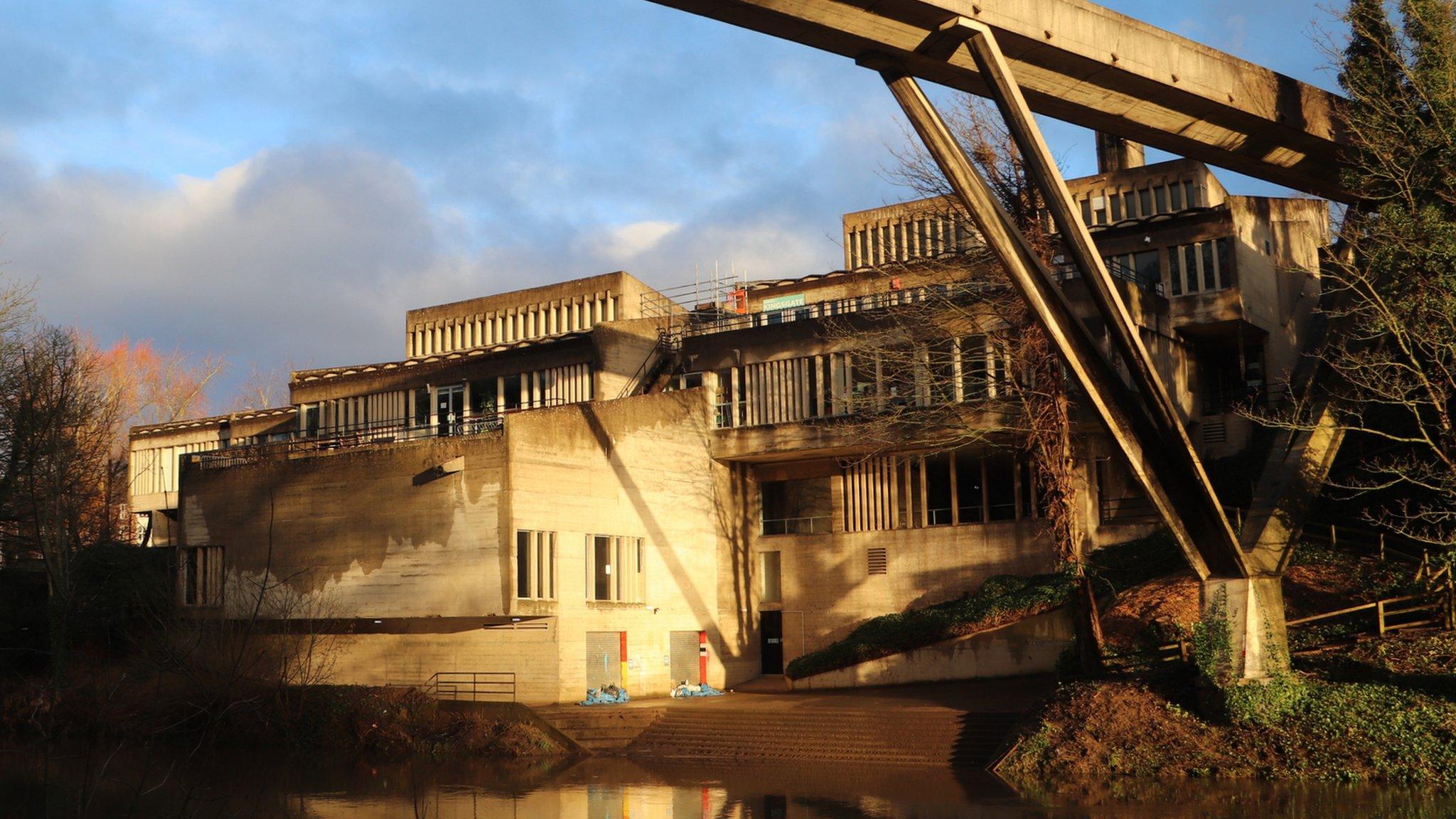Durham University reviews speaker policy after Rod Liddle row
- Published
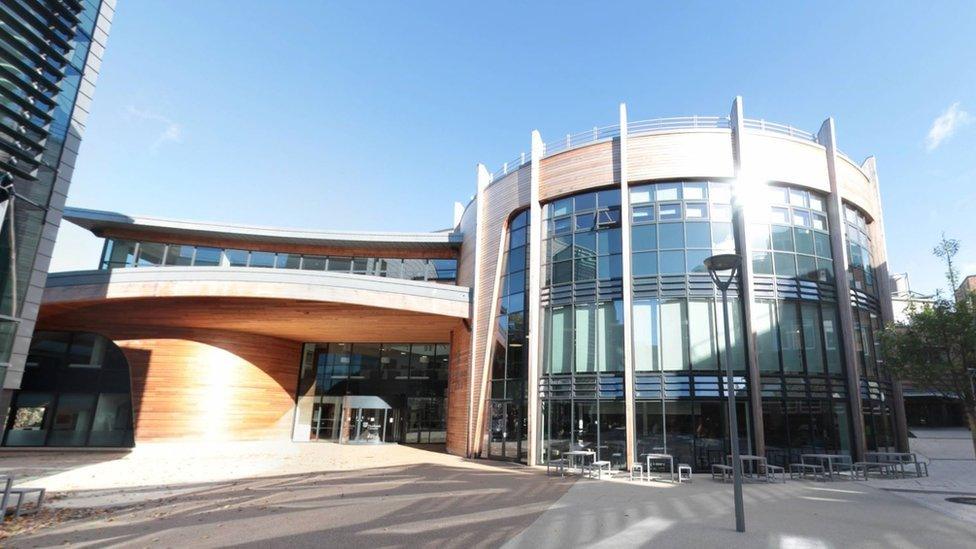
The university says it will not exclude speakers from campus
Durham University officials are reviewing policies for inviting guest speakers after a row involving columnist Rod Liddle.
In December some students walked out of an after-dinner speech at South College over comments, some about gender.
Principal professor Tim Luckhurst was criticised for calling those who left "pathetic" and stepped back from his duties but has since returned.
Durham added it did not intend "to exclude any speakers from our campus".
It said Tom Allen, master of Grey College, would lead a review of how "we engage external speakers for college-based events", but this would not lead to excluding speakers from the university.
"Rather, the focus will be on providing clarity as to how students and the wider college community are engaged, including the appropriateness of the forum for any speaker and ensuring appropriate information is provided in advance to attendees," the university said.
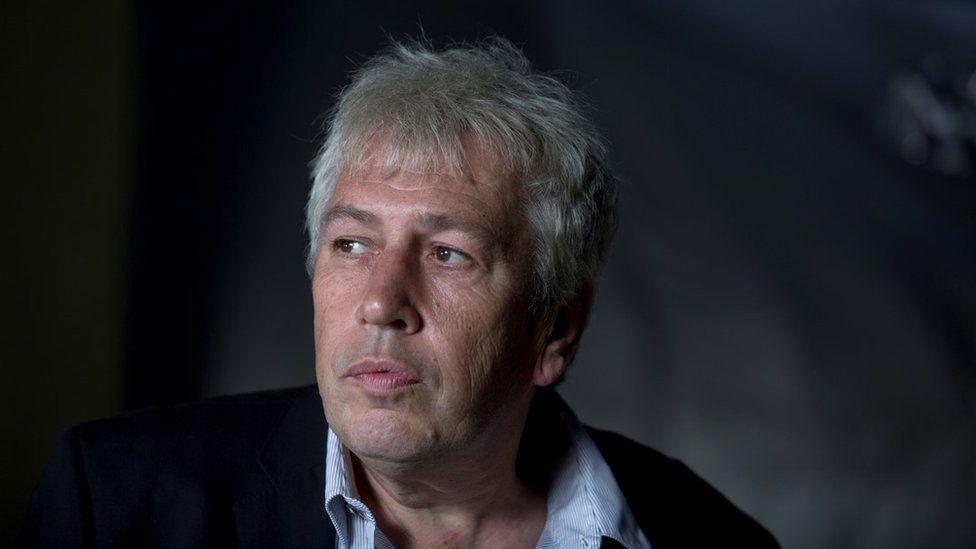
Rod Liddle writes for The Spectator and Sunday Times and was a BBC programme editor
In December Mr Liddle - a former editor of the BBC's Today programme - told BBC News university students needed to listen to views "contrary" to their own and said his speech was about "tolerance".
The row was first reported by the university's student newspaper, Palatinate, external. Mr Liddle, who was invited by Prof Luckhurst - himself a former journalist and editor, external - also met student journalists.
Durham confirmed it would not publish details of Prof Luckhurst's involvement in the incident, but said that as a university it "must constantly strive to establish a culture which is underpinned by respect and by our values" and this included "taking pride" in how ideas were discussed and debated, "including those that we may find challenging".
"We should ensure that as an educational institution we allow our students opportunities to openly debate so that ideas and views can be heard and contested respectfully," the statement added.
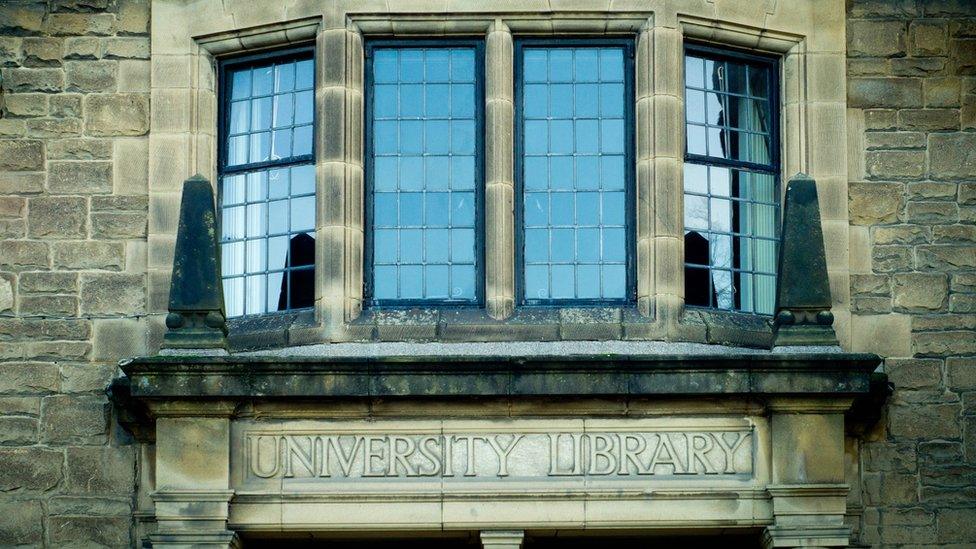
Niall Hignett, a student at South College and an organiser of protests on the issue, said the university's response smacked of a "systemic cover-up".
He said the issue was not about free speech but was about "student welfare and wellbeing" and added that because the event was not in an academic setting "there was no room there for academic debate".
He added university managers had shown themselves to be "puppets of culture war proponents" and failed to support marginalised students.
Sara L Uckelman, equalities co-officer for Durham University and College Union, called for an apology and said it would continue to press for "a clear and unambiguous statement" that the behaviour seen at the South College formal was "unacceptable and will not be tolerated".
"There is no way that the university can credibly claim that they are serious about providing an open and undiscriminating environment that is supportive of everyone - no matter class, gender, race, sex, or gender - if they do not unequivocally condemn this behaviour," she said.
In December the university stated that it was "concerned at reports that the behaviours exhibited at the occasion fall short of those that we expect".

Follow BBC North East & Cumbria on Twitter, external, Facebook, external and Instagram, external. Send your story ideas to northeastandcumbria@bbc.co.uk, external.
Related topics
- Published11 February 2022
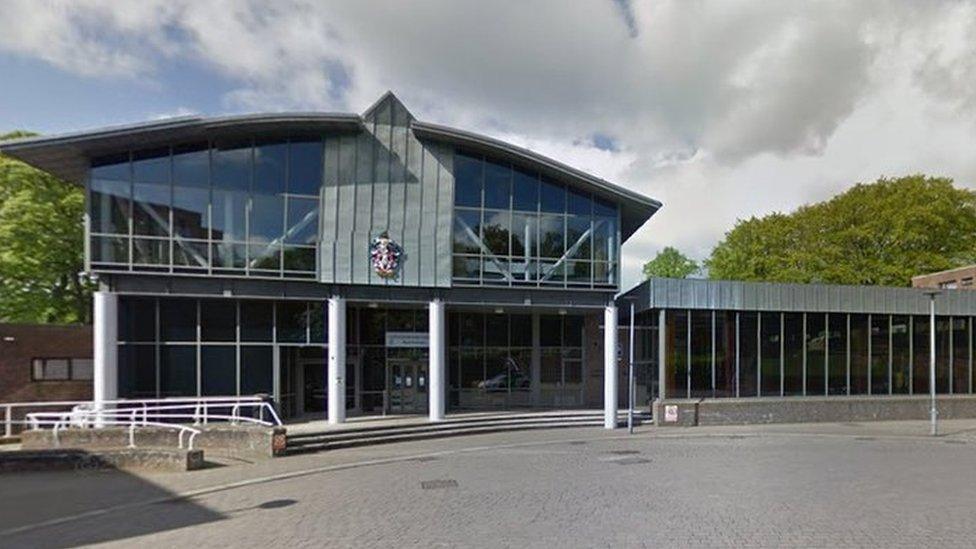
- Published10 February 2022
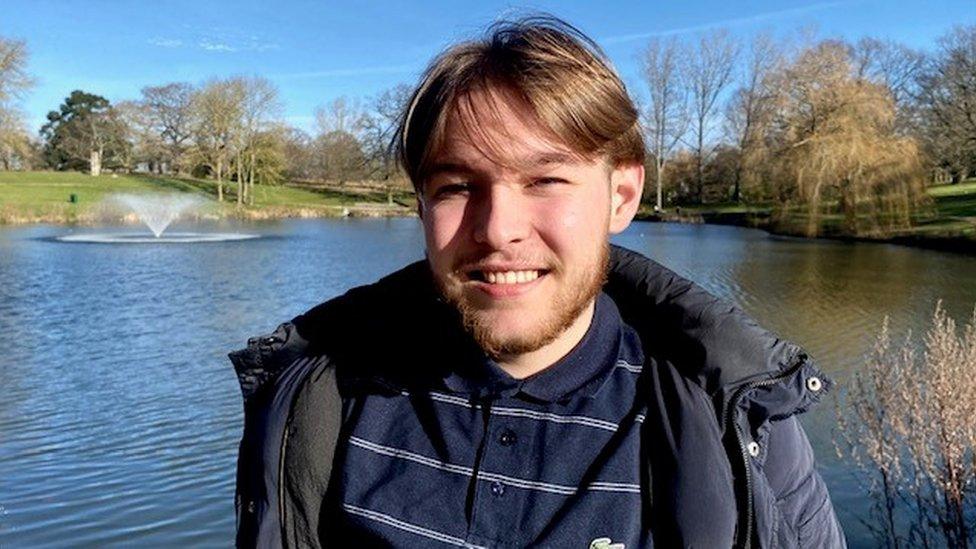
- Published9 December 2021
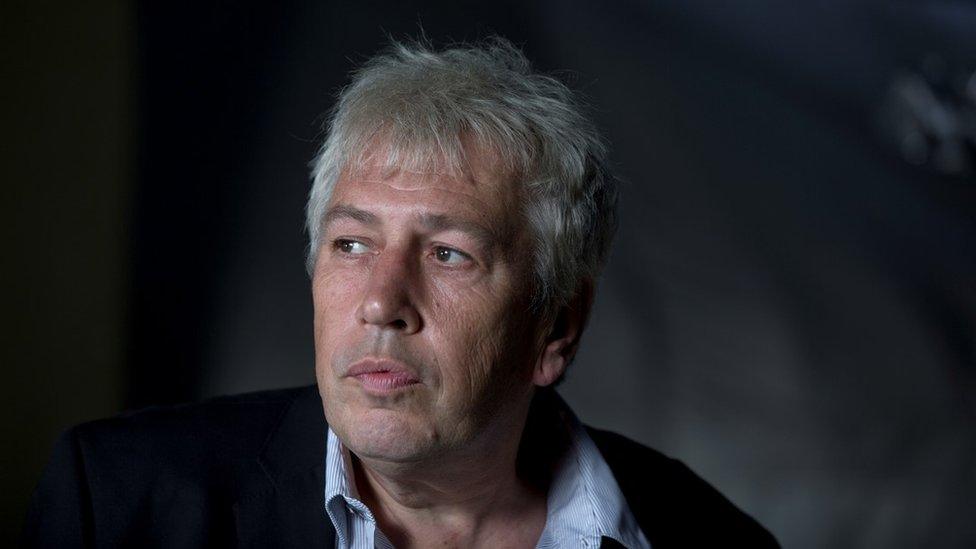
- Published13 November 2021
